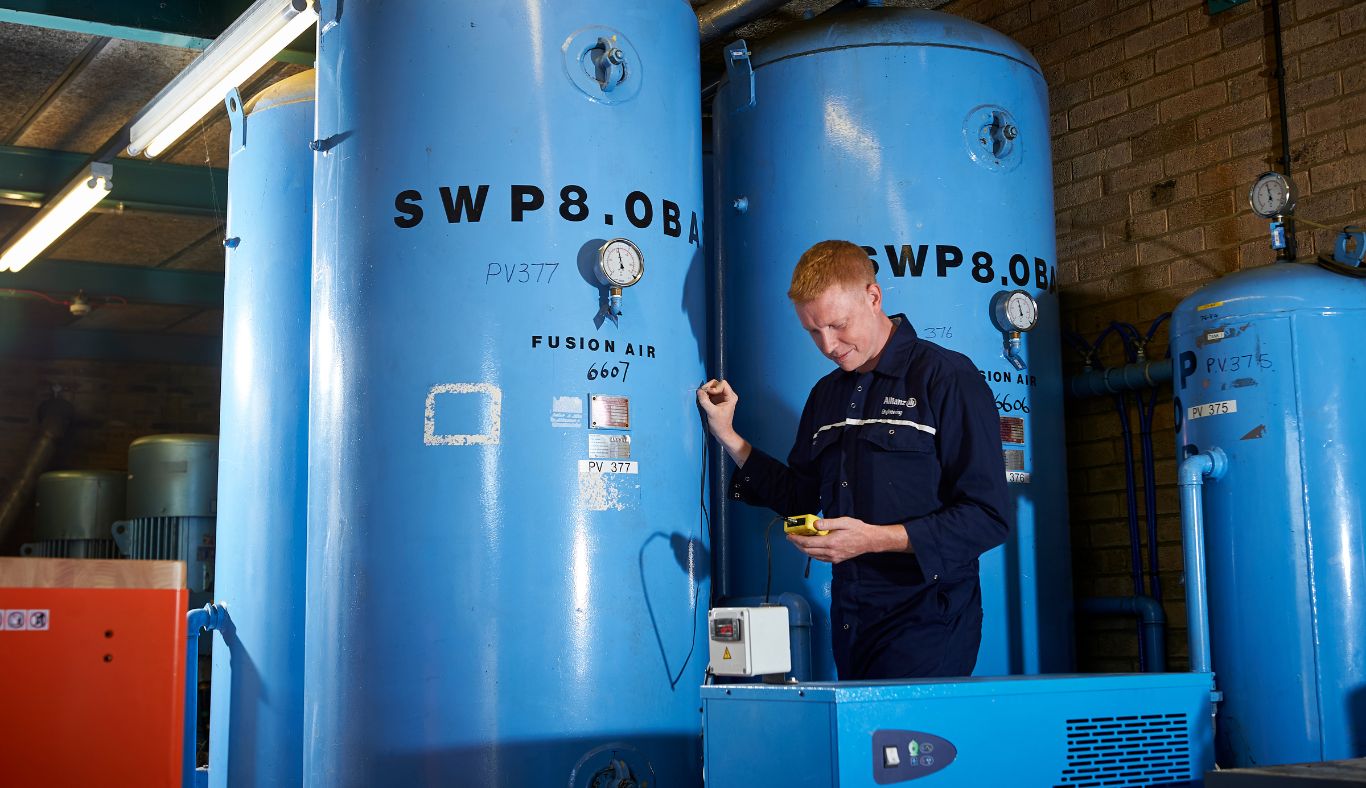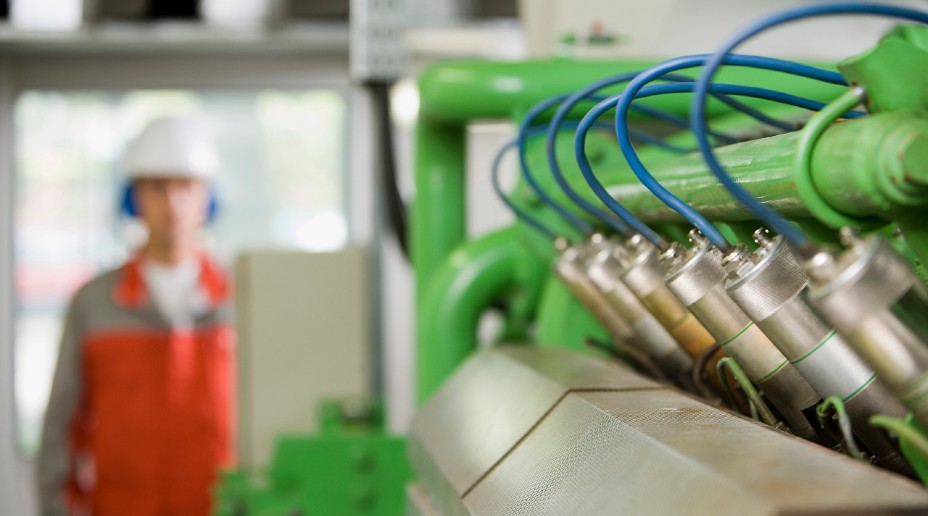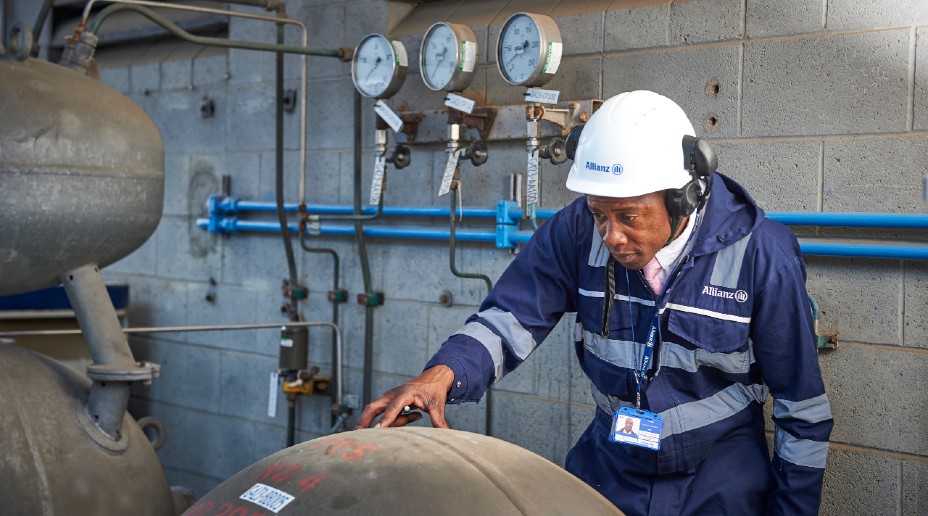- Thorough examinations of your pressure systems in accordance with PSSR.
- Thorough inspections of your pressure systems and mechanical equipment in accordance with PUWER.
For more information on our range of services,
or to book an inspection, please get in touch.
An unexpected release of energy from any type of pressure system, from industrial steam boilers to cafe boilers in coffee shops, can be highly dangerous to anyone in the vicinity. Regular inspections, maintenance and correct operation are crucial to confirm that your vessels are completely safe to use and pose no risk of injury or damage.
Ensure that your equipment is suitable for service with our pressure system inspection services. Through our nationwide team of highly trained engineer surveyors, we confirm that your systems are compliant with the examination requirements of the PSSR.
Our Pressure Systems inspection service options
Our expert engineer surveyors can carry out full inspections of your pressure systems as a regular service,
or on an ad hoc basis.
Inspection Services for Pressure Systems
Special Services for Pressure Systems
- Producing Written Schemes of Examination for your pressure systems in accordance with PSSR.
- Non-destructive testing.
- Reviewing proposals for the repair of pressure vessels and boilers.
- Witnessing hydraulic pressure tests.
- Site audits, inspections and risk assessments for industrial steam boiler installations.
- Inspections of storage tanks.
- Inspections of locomotives (including through their overhaul cycle).
Not sure which service is right for you?
Learn more about our service options or contact one of our experts.
Pressure System FAQs
The Pressure System Safety Regulations 2000 (PSSR) outlines the health and safety standards for many types of systems containing pressurised fluids, such as steam, compressed air or nitrogen, and refrigerants.
Under PSSR regulations, you are required to:
- Establish safe operating limits (SOLs) for your pressure systems.
- Have a Written Scheme of Examination (WSE) in place before operating any system.
- Ensure your pressure systems are inspected in accordance with your WSE.
- Perform suitable maintenance on your systems and provide clear instructions for users.
Meeting these pressure equipment regulations helps you prevent serious injuries by greatly reducing the risk of explosions, ruptures and mechanical failures.
In addition, pressure systems fall under the Provision and Use of Work Equipment Regulations 1998 (PUWER). This applies to the safety and functionality of any work equipment used by your employees, whether it is owned by them or not.
With a complete understanding of the technical requirements associated with all forms of pressure systems, we are perfectly placed to assess the condition and safety of your equipment.
As part of our PSSR inspections, we:
- Produce Written Schemes of Examination to detail the inspection requirements of your systems.
- Meticulously examine your pressure systems in accordance with PSSR.
- Inspect your pressure systems and mechanical equipment in line with the requirements of PUWER.
We can also perform a range of additional services to further assess the safety of your systems, including reviews of repair proposals, witnessing hydraulic pressure tests, and conducting site audits and risk assessments for your steam boiler installations.
You can see a full list of our available services here.
- industrial steam boilers
- cafe boilers
- air receivers
- autoclaves
- calorifiers
- refrigeration and air conditioning plants
- pressurised storage vessels.
PSSR inspections are vital to confirming your pressure systems are suitable for service. A trained, competent engineer surveyor can identify potential weaknesses in your systems early, before they can become dangerous to personnel, cause plant breakdowns, or disrupt your processes.
Regular risk-based inspections help to confirm:
- That your equipment is safe to be used and interacted with.
- There is minimal risk of unexpected releases of pressure.
Plus, frequent checks are necessary to make sure you comply with PSSR regulations. You could face six-figure fines for significant breaches of PSSR, especially if this results in someone’s injury or death.
PSSR inspections must be performed by a ‘competent person’. This is someone with expert knowledge and understanding of this equipment, trained to spot any potential failures in a pressure system before they can become dangerous.
We provide a fully independent and impartial inspection service to assess the condition and safety of your equipment.
The extensive experience and comprehensive knowledge of our engineer surveyors means we can inspect your equipment to these high standards.
A Written Scheme of Examination (WSE) is a document outlining the items of plant or equipment that form your pressure systems. It will detail what components require inspection, and how often.
Under PSSR, the user of an installed system or the owner of a mobile system is duty bound to ensure pressure systems are not used unless they have a WSE in place.
The statutory requirements for pressure systems are based on their volume and pressure of the vessels they contain, and whether these contain a relevant fluid, such as steam or compressed air above 0.5bar.
If a pressure system with a relevant fluid contains a vessel where the product of its volume (in litres) and its pressure (in bar) is above 250 bar-litres (bl), it is likely to require a Written Scheme of Examination.
For example, if your 30-litre air receiver has a design pressure of 12 bar, this equals 360bl (30 x 12) – meaning it would require both a WSE and periodic inspections.
For more information, refer to HSE's flow chart on page 9 of the PSSR ACoP.
A relevant fluid is:
- steam at any pressure
- compressed gas at a pressure greater than 0.5 bar atmospheric pressure
- a liquid with a vapour pressure greater than 0.5 bar atmospheric pressure - this includes refrigerants and pressurised hot water above 110 °C
- a gas dissolved under pressure in a solvent (acetylene).
Refrigeration plants that contain pressure vessels, with compressor power over 25 kilowatts, also require a WSE and inspections.
How often should PSSR inspections and tests take place?
The frequency of your PSSR inspections will depend on the type of pressure systems you have, how they are used and how they are deteriorating.
However, many pressure systems are inspected at common frequencies. Cafe boilers and autoclaves are often inspected every 14 months, while air receivers, calorifiers and steam vessels are often inspected once every 26 months.
Scroll down for our complete list of PSSR inspection frequencies.
Swipe to view more
| Plant/Equipment Type | Applicable Legislation | Periodicity of Inspection |
| Air Receivers | PUWER / PSSR | Typically 26 months |
| Autoclaves | PSSR | 14 months |
| Blowdown Vessels | PSSR |
Same periodicity of the boiler to which it is connected: Shell Boiler - 14 months Water tube boiler - 26 months |
| Bulk Storage Vessel | PUWER / PSSR / COMAH | Will vary depending on risk assessment |
| Cafe Boilers | PUWER / PSSR | 14 months |
| Calorifiers | PUWER / PSSR | 26 months |
| Hot Water Boilers | PUWER / PSSR |
PUWER - 24 months PUWER applies to those boilers in which the temperature is below 100oC. PSSR applies to those boilers in which the water temperature is at or above 100oC. |
| Jacket Reactor Vessel | PUWER / PSSR / COMAH | Will vary depending on risk assessment |
| Pressurisation Units | PUWER / PSSR | 60 months |
| Refrigeration & Air Conditioning Plant | PUWER / PSSR | 48 months |
| Steam Boilers | PSSR |
Horizontal Multi-tubular Boilers; Vertical Boilers; Autoclaves - 14 months Water-tube Boilers - 26 months |
| Steam Vessels | PSSR | 26 months |
Speak to our team to explore our range of service options.
Why choose Allianz for your Pressure System inspections?
and capacity than anyone else, you can rely on our team to take care of all inspections and tests with absolute
efficiency and attention to detail, so you always comply with pressure safety standards.


